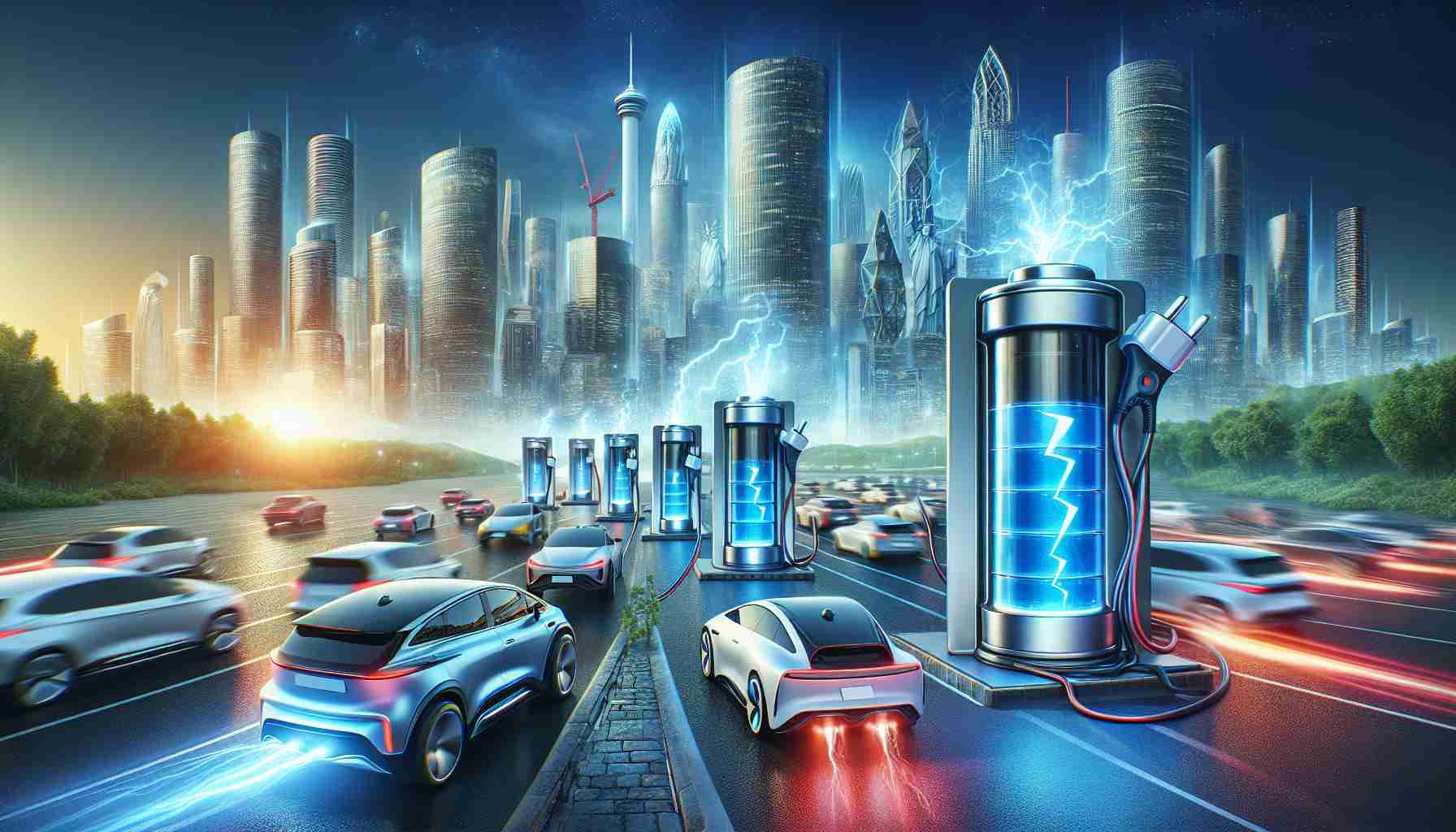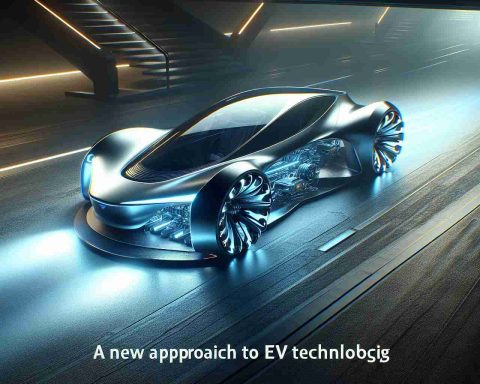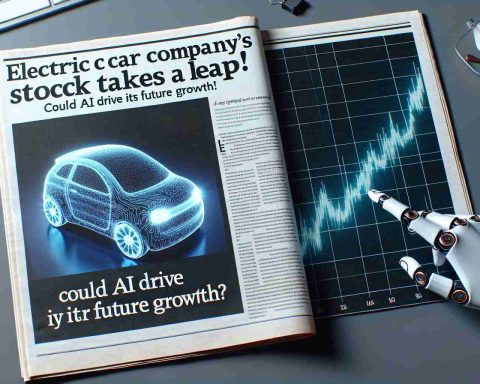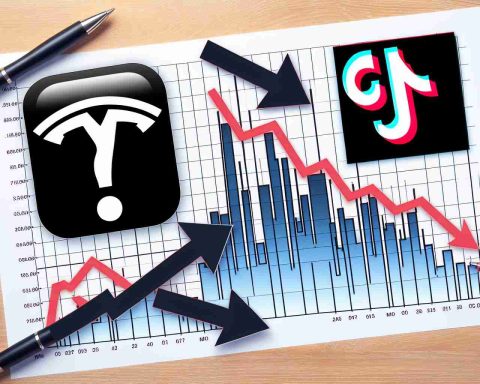Electric Vehicle Battery Market Growth
The electric vehicle (EV) battery market has seen tremendous growth, currently valued at approximately USD 289.36 billion. Projections suggest a remarkable increase at a compound annual growth rate (CAGR) of 27.2% from 2024 to 2030, potentially reaching USD 1558.15 billion. This surge is largely fueled by a global pivot towards sustainable transportation.
Governments around the world are implementing strict environmental policies, pushing for the transition from traditional internal combustion engines to electric vehicles. This trend has resulted in a significant increase in the demand for lithium-ion batteries, essential for the performance and efficiency of EVs. As public awareness regarding eco-friendly mobility rises, automakers are emphasizing EV development and investing in advanced battery technologies.
Moreover, a noteworthy decline in battery costs has been observed over the last decade. This reduction has made electric vehicles more accessible, paving the way for increased market competition and innovation. Key advancements in battery technology are further enhancing performance and decreasing concerns over battery longevity.
Among emerging technologies, solid-state batteries are drawing attention, promising benefits such as higher energy density and faster charging. These innovations are expected to redefine the electric vehicle landscape, offering users greater driving ranges and enhanced vehicle efficiency.
As the world accelerates towards greener solutions, the electric vehicle battery market stands poised for remarkable expansion and innovation.
The Electric Vehicle Battery Market: A Catalyst for Sustainable Change
The electric vehicle (EV) battery market is not just a burgeoning sector within the automotive industry; it represents a critical component of global efforts toward sustainable development and environmental protection. Currently valued at approximately USD 289.36 billion and projected to escalate to USD 1558.15 billion by 2030, this market is a testament to humanity’s pivot toward cleaner transportation solutions. The implications of this growth extend far beyond the automotive sector, influencing the environment, human health, and economic dynamics across the globe.
Environmental Impact
The transition from traditional internal combustion engine vehicles to electric vehicles powered by lithium-ion batteries has profound environmental implications. By reducing reliance on fossil fuels, EVs contribute to lower greenhouse gas emissions and air pollution, which are significant factors in climate change and public health issues. As governments enact rigorous environmental policies fostering the adoption of electric vehicles, a notable decrease in urban air pollution can be anticipated. This shift aids in mitigating health problems associated with air quality, such as respiratory diseases and cardiovascular conditions, ultimately leading to healthier communities.
Moreover, as the demand for lithium-ion batteries increases, so does the necessity for sustainable sourcing of materials like lithium, cobalt, and nickel. The environmental impact of mining these resources poses risks, such as habitat destruction and water pollution. However, the industry is increasingly aware of these challenges and is investing in sustainable mining practices and battery recycling technologies. This progressive approach not only curtails negative environmental impacts but also embodies a commitment to circular economy principles where materials are reused and waste is minimized.
Economic Factors
Economically, the surge in the electric vehicle battery market is driving job creation and technological innovation. As companies invest in battery research and development to enhance performance and reduce costs, new job opportunities emerge across various sectors, including manufacturing, research, and environmental management. Additionally, the declining costs of batteries make electric vehicles more accessible to the general public, unlocking a broader market and stimulating economic growth. Increased competition among automakers to produce advanced electric vehicles also fosters innovation, resulting in better quality products and improved consumer choices.
The Future of Humanity
Looking ahead, the future trajectory of the electric vehicle battery market is intricately linked to humanity’s approach to sustainable living. The rise of solid-state batteries, with their potential for higher energy density and faster charging times, signifies a transformative phase in EV technology that is likely to further enhance user experience and efficiency. As these advancements materialize, society could witness a major shift in mobility patterns, with electric vehicles becoming the mainstay of transportation worldwide.
The widespread adoption of electric vehicles not only signifies progress in reducing carbon footprints but also plays a vital role in energy transition. As the shift to renewable energy sources accelerates, the synergistic relationship between electric vehicle adoption and clean energy generation becomes increasingly essential. Increased demand for electric vehicle batteries will necessitate advancements in energy storage technologies, ultimately facilitating a more sustainable energy ecosystem.
In summary, the growth of the electric vehicle battery market creates a ripple effect impacting the environment, public health, and the economy. It embodies a collective effort towards a sustainable future, highlighting how innovation in one sector can significantly shape the trajectory of humanity. As we embrace electric mobility, we step closer to a world where sustainability and environmental stewardship are at the forefront of our global agenda.
The Future of Electric Vehicle Batteries: Innovations and Insights
Electric Vehicle Battery Market Growth
The electric vehicle (EV) battery market is currently valued at an impressive estimated USD 289.36 billion. With a projected compound annual growth rate (CAGR) of 27.2% from 2024 to 2030, the market could soar to USD 1558.15 billion by the end of this forecast period. This phenomenal growth is primarily driven by the increasing global demand for sustainable transportation solutions.
Features of the EV Battery Market
1. Innovative Battery Technologies: The emergence of solid-state batteries represents a significant innovation, boasting higher energy density and faster charging capabilities. These advancements could enhance EV performance, driving longer ranges and improved efficiency.
2. Cost Reduction: Over the past decade, batteries have become notably more affordable. This reduction has not only made EVs more accessible to consumers but has also stimulated competition and innovation within the market.
3. Regulatory Support: A growing number of governments are enforcing stringent environmental policies aimed at reducing carbon emissions, facilitating the shift from traditional combustion engines to electric models.
4. Public Awareness: As awareness of eco-friendly mobility rises, consumers are increasingly seeking electric vehicles, promoting industry growth.
Pros and Cons of Electric Vehicle Batteries
Pros:
– Environmental Benefits: EV batteries contribute to lower greenhouse gas emissions.
– Cost Efficiency: Reduction in operational costs and maintenance compared to traditional engines.
– Technological Advancements: Continuous improvements in battery technology enhance vehicle performance.
Cons:
– Charging Infrastructure: Limited charging stations can hinder widespread adoption.
– Battery Longevity: Concerns regarding the lifespan and efficiency of batteries over time.
– Resource Intensive: Manufacturing batteries requires significant natural resources, raising sustainability issues.
Use Cases of Electric Vehicle Batteries
Electric vehicle batteries are versatile and find applications not just in cars, but also in:
– Commercial Transportation: Trucks and buses are transitioning to electric power to reduce emissions.
– Bicycle and Motorcycles: E-bikes and electric motorcycles are gaining traction, offering zero-emission options for personal transport.
– Energy Storage Systems: Used for energy storage in residential and commercial applications, helping to balance grid demand.
Limitations of Current Battery Technologies
While advancements continue, existing EV batteries face challenges:
– Charge Time: Despite improvements, charging an EV still typically takes longer than refueling a gasoline vehicle.
– Range Anxiety: Many users remain concerned about the driving range of electric vehicles relative to gasoline counterparts.
– Recycling and Disposal: The environmental impact of battery disposal and recycling needs to be efficiently managed.
Market Trends and Predictions
Industry forecasts indicate an accelerating trend toward sustainability and technological advancement in the electric vehicle battery sector. A noticeable shift towards recycling methods for battery materials is also expected, as companies strive to minimize waste and conserve resources.
Conclusion
The electric vehicle battery market is on the brink of a significant transformation, fueled by innovations in technology, supportive government actions, and growing consumer demand. With the rise of solid-state batteries and ongoing advancements, the future looks bright for electric vehicles and their role in a sustainable transportation ecosystem.
For further insights and developments in this rapidly evolving market, visit Forbes or BBC for reliable information.



















